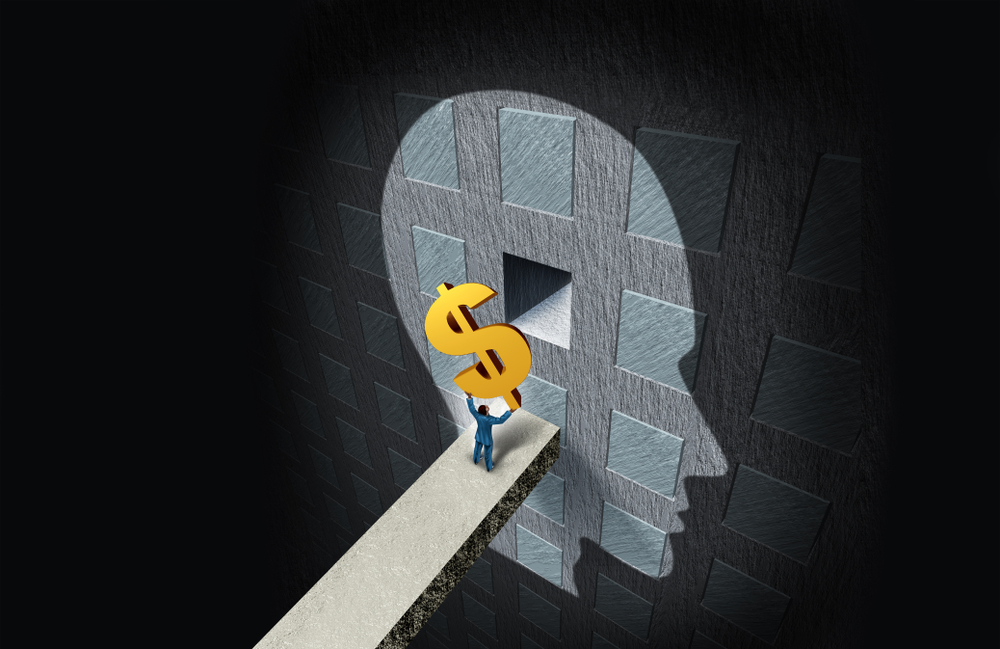
Investing is not just about analyzing numbers and charts — psychology is just as important. Emotions such as fear, greed, or excessive confidence often lead to irrational decisions, such as impulsive buying or panic selling. To invest effectively, it is crucial to understand the factors influencing your decisions and adopt techniques that help prevent losses.
Fear and Greed
Emotions are an inseparable part of trading and investing, but when they take control of decision-making, they can lead to unnecessary losses. The two most prominent emotions affecting traders and investors are fear and greed. Fear is most evident during market downturns when traders panic-sell their assets to prevent further financial losses. However, this often results in unnecessary losses and missing out on market recovery opportunities. On the other hand, greed dominates during market upswings when investors succumb to the FOMO effect (fear of missing out[1]) and buy assets at inflated prices, hoping for endless profits. This cycle leads people to buy high and sell low—the exact opposite of what they should be doing.
Controlling Emotions
So, how can one avoid emotional trading and investing? The first step is to have a clear plan and stick to it, regardless of short-term fluctuations. Additionally, diversifying your portfolio helps mitigate risk and reduces the likelihood of panic-driven reactions. Using stop-loss orders can also help automatically limit losses without emotional decision-making. Lastly, continuous education and a long-term approach are key to resisting impulsive reactions and making rational decisions in the stock market.
Cognitive Biases and Their Impact on Investments
Besides fear and greed, traders and investors are also influenced by various cognitive biases that lead to poor judgment. One of the most common is confirmation bias[2], where individuals seek out information that supports their existing beliefs while ignoring contradictory evidence, increasing the likelihood of poor decision-making. Another issue is anchoring bias[3], where traders and investors fixate on an asset’s original price and ignore current market conditions, potentially missing opportunities or holding onto losing investments for too long. Additionally, overconfidence bias[4] leads investors to overestimate their ability to predict the market, often resulting in excessive trading and risky decisions without adequate analysis.
Overcoming Cognitive Barriers
How can these biases be minimized? The best approach is critical thinking and constant self-reflection. It is important to actively seek opposing viewpoints, analyze information from multiple sources, and be aware of personal biases. Regularly reassessing open trades and investments based on current data—rather than emotions or past decisions—helps maintain an objective perspective. After all, recognizing that no one can perfectly predict the market can protect investors from overconfidence and impulsive actions.
Why Do We Feel Losses More Intensely Than Gains?
In addition to emotional and psychological influences, a key finding in investing comes from the research of A. Tversky and D. Kahneman, which shows that the pain of losing €100 is approximately twice as strong as the joy of gaining the same amount[5]. People perceive losses far more intensely than gains, a psychological phenomenon known as loss aversion[6]. A typical manifestation of loss aversion is that market participants hold onto declining assets for too long, hoping their value will eventually recover. Instead of acknowledging a mistake and reallocating capital to more profitable opportunities, they stay in losing positions and miss out on further growth potential. Conversely, with profitable investments, they often sell too early out of fear of losing gains, even when the asset still has room to grow.
The Path to Discipline
As mentioned earlier, investment success depends not only on selecting the right assets but also on discipline and emotional control. The key to long-term success is having a clear plan that defines goals, time horizon, and risk management strategy, minimizing the influence of impulsive decisions driven by fear or greed. It is also essential to remain calm during market fluctuations, as volatility is a natural part of trading and investing. Additionally, education and a long-term approach are crucial for overcoming psychological challenges. The more you understand the markets, the better you can predict and control your emotional reactions.
[1] https://www.investing.com/analysis/how-to-invest-and-defy-our-fear-of-fomo-200577614
[2] https://www.investopedia.com/terms/c/confirmation-bias.asp
[3] https://www.investopedia.com/terms/a/anchoring.asp
[4] https://www.investopedia.com/overconfidence-bias-7485796
[5] https://psych.fullerton.edu/mbirnbaum/psych466/articles/Tversky_Kahneman_JRU_92.pdf
[6] https://www.investopedia.com/terms/l/loss-psychology.asp

He has been trading in the capital markets since 2002, when he started as a commodity Futures trader. Gradually he shifted his focus to equity markets, where he worked for many years with securities traders in Slovakia and the Czech Republic. He also has trading experience in markets focused on leveraged products such as Forex and CFDs, and his current new challenge is cryptocurrency trading.


